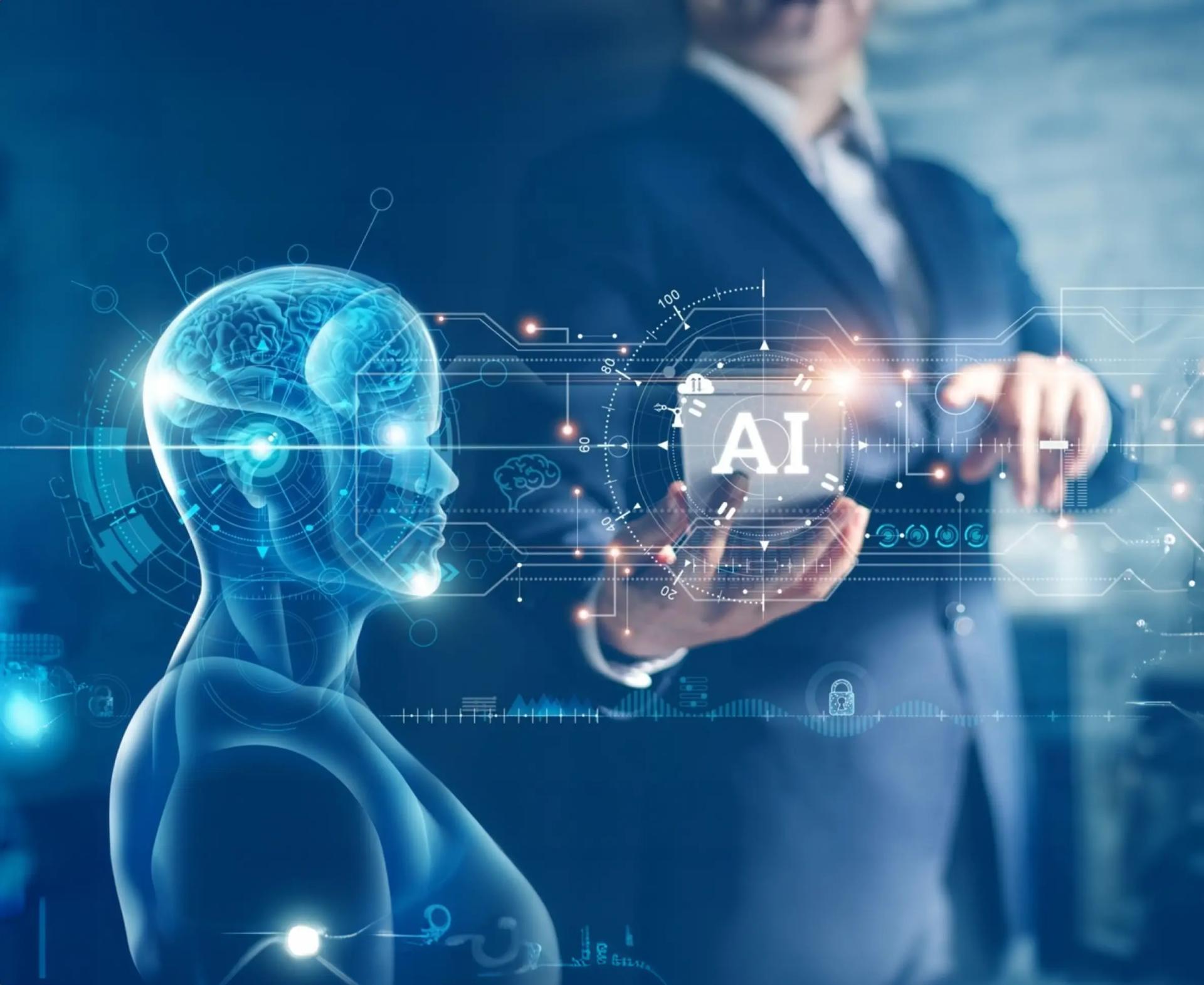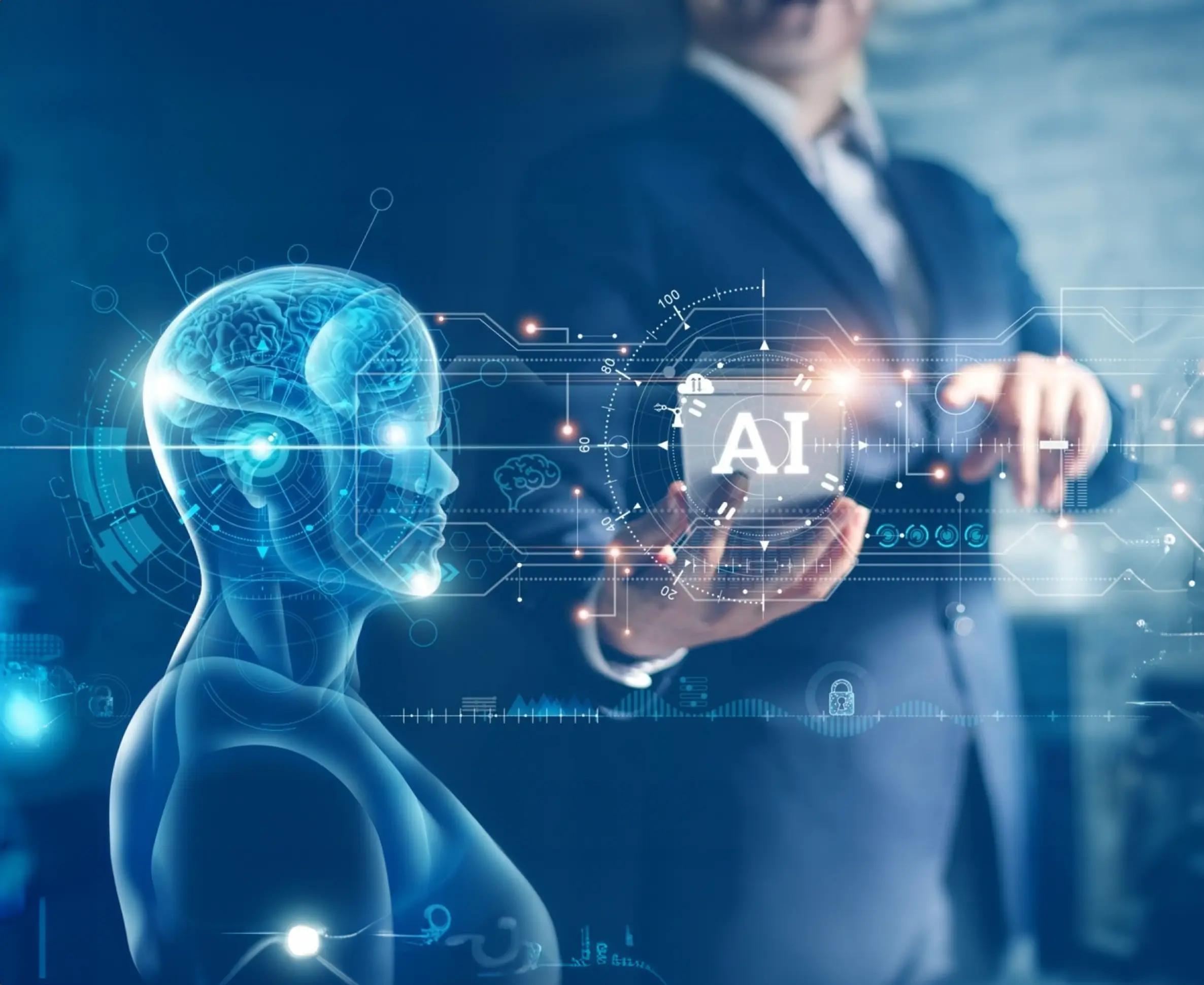
AI is revolutionizing customer experience by enabling hyper-personalization, predictive analytics, and intelligent automation.
AI-Driven Customer Experience: A Game-Changer in 2023 and Beyond
Introduction
In the ever-changing business landscape, artificial intelligence (AI) has emerged as a transformative force, revolutionizing customer interactions and experiences. According to industry insights, a significant 57% of business leaders are planning to increase their AI investments by at least 25% in the coming year, highlighting the growing importance of AI in business strategies.
AI's role goes beyond simple automation. It is a catalyst for enriching the customer experience, which is critical given that a single negative customer service interaction can lead to 61% of customers abandoning a brand. The challenge, therefore, lies in using AI to elevate the customer experience to unprecedented heights.
AI-Driven Customer Experience
The Concept and Its Mechanism
AI is transforming costumer experience by streamlining and enhancing every customer touchpoint. AI-powered tools, such as chatbots and conversational UX, can automate repetitive tasks and free up support agents to focus on more complex issues. This ensures swift resolutions to customer inquiries, regardless of complexity.
For example, a chatbot can answer FAQs about a product or service. This frees up agents to troubleshoot problems or resolve complaints. Chatbots can also collect feedback to improve costumer experience.
In addition to chatbots, AI can enhance conversational UX by creating a more natural and engaging way for customers to interact with a brand. For example, AI can power voice-activated assistants that can answer questions, make purchases, and control smart home devices.
AI in costumer experience is started to reach high stages, and s it has the potential to reach even higher levels, and change the way businesses interact with customers. By automating repetitive tasks and enhancing conversational UX, AI can help businesses provide a more personalized, efficient, and engaging costumer experience.
AI in Customer Experience: Real-World Implementations
Artificial Intelligence (AI) has been increasingly adopted in various sectors, and customer service is no exception. The headline "AI in Customer Experience: Real-World Implementations" delves into the practical applications of AI in enhancing customer experience. AI tools, such as chatbots, recommendation systems, and sentiment analysis, are being utilized to provide personalized, efficient, and proactive customer service.
For businesses looking to integrate AI into their operations, it's important to consider partnering with Ai experts in the field.
Chatbots, for instance, are capable of handling multiple customer inquiries simultaneously, providing instant responses and reducing wait times. Recommendation systems analyze customer behavior and preferences to suggest products or services that align with their interests, thereby enhancing customer satisfaction and loyalty. Sentiment analysis, on the other hand, allows businesses to understand customer emotions and feedback, enabling them to make necessary improvements.
These real-world implementations of AI not only streamline customer service operations but also foster a more engaging and satisfying customer experience. By leveraging the expertise of companies like Metachain Technologies, businesses can effectively harness the power of AI to enhance their customer experience.
AI and the Seasonality of costumer experience
AI has a pivotal role in managing the seasonality of customer experience. Advanced AI applications can enhance brand visibility and presence, ensuring customers have ample opportunities for assistance. AI facilitates this by ensuring customer assistance is readily available, especially during off-peak hours or peak seasons like holidays.
For instance, during Black Friday, the demand for costumer experience support skyrockets as online shopping activity surges. While hiring additional staff is a common strategy, businesses also need to amplify their AI capabilities. This could involve deploying sophisticated strategies and adopting innovative tactics such as voice technology. Inclusive AI technology ensures that all customers feel acknowledged and catered to.
Ten Ways AI is Revolutionizing Customer Experience in 2023

1. Round-the-Clock Customer Support with AI-Driven Self-Service:
AI-powered self-service options, such as chatbots, have revolutionized customer support by providing 24/7 service. These AI tools can handle customer queries at any time, providing round-the-clock service. This not only enhances customer satisfaction but also reduces the workload on customer service representatives. For example, Amtrak, the US-based passenger railroad service, uses an AI-powered chatbot named "Julie" to handle customer queries, provide information, and even book tickets, providing seamless customer service round the clock.Furthermore, AI could be used to develop a multilingual chatbot that can interact with customers in their native language, enhancing the customer experience for a global audience.
2. Accelerated Resolutions:
AI has made a significant impact in reducing response times in customer service. Tools powered by AI, such as chatbots and interactive voice response (IVR) systems, are capable of providing immediate answers to customer inquiries, leading to faster problem resolution. A case in point is DBS Bank, which employs AI to offer immediate responses to customer inquiries, thereby reducing response time and enhancing customer satisfaction.Furthermore, AI can be leveraged to create predictive models that anticipate common customer inquiries based on historical data. This allows the system to provide even quicker responses.
3. Minimization of Errors:
AI has the power to drastically cut down on human errors in customer service. It can autonomously gather customer details and equip agents with the necessary context to tackle a problem, thereby reducing the likelihood of errors. Furthermore, AI can sift through large volumes of customer data to provide precise predictions about customer behavior, leading to more effective customer service. A case in point is KLM Royal Dutch Airlines, which employs AI to deliver accurate and personalized responses to customer inquiries, thereby enhancing the precision and efficiency of their customer service.For superior outcomes, AI could be employed to create a system that automatically identifies and corrects errors in real-time, further diminishing the likelihood of errors in customer service.
4. Efficient Routing of Incoming Calls or Messages:
AI can automatically route incoming calls or messages to the appropriate agent based on the content of the message, improving the efficiency of customer service. This process, known as skills-based routing, ensures that customer queries are handled by the most suitable agent, leading to more effective resolutions. For instance, Vodafone uses AI to route customer calls to the most suitable agent, improving the efficiency and effectiveness of their customer service.This can be used to develop a system that predicts the best time to contact a customer based on their past interaction history, improving the chances of a successful interaction.
5. Delivering Personalized Recommendations:
AI has the capability to scrutinize customer behavior, demographics, and personal preferences to offer personalized recommendations, thereby enhancing the customer experience. For instance, Netflix employs AI to analyze viewing patterns and suggest shows and movies based on individual preferences, offering a tailored viewing experience.AI could be leveraged to create a system that not only recommends products but also elucidates why those products were recommended, providing a more transparent and trustworthy recommendation system.
6. Anticipating Customer Needs and Potential Issues:
AI can predict customer behavior and anticipate their needs, allowing businesses to provide proactive service. For instance, Amazon uses AI to predict customer behavior and provide personalized product recommendations, enhancing the shopping experience and improving customer satisfaction.For more enhanced experience, AI could be used to develop a system that not only predicts customer needs but also suggests proactive measures to meet those needs, enhancing customer satisfaction.
7. Seamless Interactions through Conversation History Tracking:
Customers expect businesses to understand their history and preferences. AI-powered bots can review past customer interactions to gain all the relevant context they need to provide seamless support. This creates a true omnichannel experience, saving time and enhancing customer satisfaction.For example, Salesforce uses AI to analyze past customer interactions and provide personalized service, improving customer satisfaction and loyalty.Even for more personalized service, AI could be used to develop a system that not only tracks conversation history but also predicts future customer queries based on that history.
8. Sales Boost with Bots:
AI-powered chatbots can do more than just provide customer support. They can alert customers about new products, special discount codes, and other information that encourages them to make purchases. These upsells and cross-sells feel like helpful recommendations rather than sales pitches, enhancing the customer experience. By understanding customer preferences, these bots can suggest products or services that customers are likely to be interested in, increasing sales and revenue. For instance, H&M uses an AI-powered chatbot to provide personalized fashion recommendations, enhancing the shopping experience and boosting sales.This can be used to develop more advanced system, which could be used to develop a system that not only suggests products but also predicts the likelihood of a purchase, helping businesses optimize their sales strategies.
9. Reducing Employee Burnout:
Customer service agents often have to handle a high volume of queries, leading to stress and burnout. AI can help reduce agents’ workloads by handling simple inquiries and guiding customers to relevant knowledge base content. This gives agents more time to address complex tickets and take breaks, reducing the risk of burnout. By improving the work environment for agents, businesses can also improve their customer service quality. For example, Forethought uses AI to automate repetitive tasks in customer service, reducing the workload on agents and improving their job satisfaction.For this, AI could be used to develop a system that not only reduces the workload on agents but also predicts when they might need a break, helping to prevent burnout and maintain high-quality customer service.
10. Enhancing Security Measures:
In the era of digitalization, security is a paramount concern for customers. AI can significantly bolster security measures in customer interactions. By utilizing sophisticated algorithms and machine learning models, AI can identify fraudulent activities, safeguard sensitive customer data, and ensure a safe and secure customer experience. This not only protects customers but also assists businesses in complying with data protection regulations and maintaining their reputation.Numerous businesses use AI to develop a system that not only detects fraudulent activities but also predicts potential security threats, assisting businesses in proactively protecting their customers and their data.
Conclusion:

As we delve deeper into the digital era, the influence of Artificial Intelligence in shaping customer experiences continues to grow. AI is transforming the way businesses interact with their customers, from offering 24/7 support and personalized recommendations to bolstering security measures and mitigating employee burnout.
Companies like Amtrak, DBS Bank, KLM Royal Dutch Airlines, Vodafone, Netflix, Amazon, Salesforce, H&M, and Forethought are testament to the transformative power of AI. These companies, with the help of AI app developers and AI experts, are not just meeting but surpassing customer expectations, thereby setting new benchmarks in their respective industries.
However, the use of AI in customer service, developed by AI development companies, comes with its own set of challenges. Businesses must ensure that their AI tools are transparent, ethical, and respectful of user privacy. Regular updates and maintenance are also crucial to ensure that their AI tools continue to provide accurate and relevant responses.
Despite these challenges, the potential benefits of AI in customer service are immense. As AI technology continues to evolve, we can expect to see even more innovative applications that will further enhance the customer experience. The future of customer service is undoubtedly AI-driven, and businesses that embrace this technology, possibly with the help of a software development company, will be well-positioned to lead in their respective markets.

Anas Madi
Forward thinking leader of a distinguished team of technical experts.References
- 1) Conversational AI: Dialogue Systems, Conversational Agents, and Chatbots.
- 2) Why do consumers with social phobia prefer anthropomorphic customer service chatbots? Evolutionary explanations of the moderating roles of social phobia.
- 3) Artificial Intelligence in Practice: How 50 Successful Companies Used AI and Machine Learning to Solve Problems" by Bernard Marr, Matt Ward.
- 4) Artificial Intelligence and Machine Learning for Business: A No-Nonsense Guide to Data Driven Technologies by Steven Finlay.
- 5) Artificial Intelligence: Structures and Strategies for Complex Problem Solving by George F. Luger.
- 6) Artificial Intelligence: A Modern Approach by Stuart Russell, Peter Norvig.




